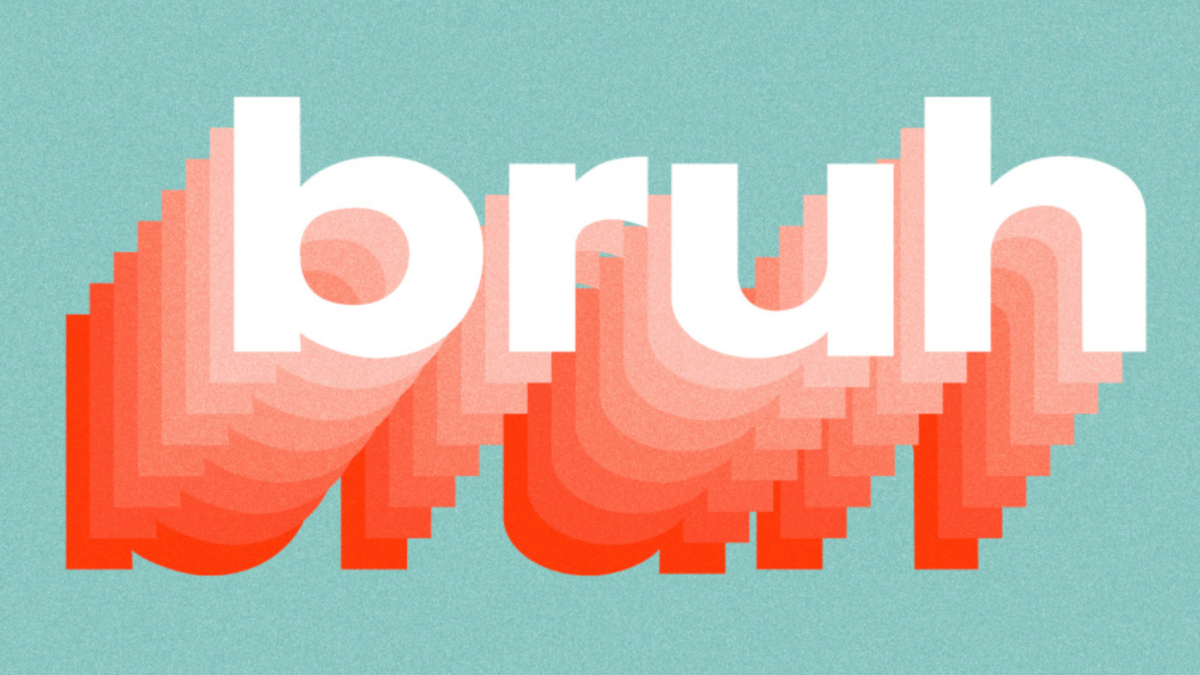Bruh.
You may possibly have read this phrase from your child when they are irritated, disappointed, amused or all of the higher than. Now you happen to be thinking what it in fact usually means.
“Bruh” means “bro” and “can be applied to deal with anybody,” according to Bark.us, a organization that decodes teenage slang.
Urban Dictionary, meanwhile, mostly defines “bruh” as “the finest remedy to literally anything.”
The website devotes 5 internet pages to illustrations: A response to a “silly” or evident remark, a general greeting or a indication of exasperation, disappointment or disbelief. “Bruh” can substitute for “What?” or be made use of “just mainly because.”
Kelly Elizabeth Wright, a postdoctoral research fellow in language sciences at Virginia Tech, points to a lot more sweeping definitions.
“Merriam-Webster tells us that ‘bruh’ is a shortening of ‘brother,’ dating the very first utilization to 1894 and attributing it to the origins of the identical Black Southern dialects which gave us the ‘brer’ in Brer Rabbit,” she tells TODAY.com. “It also notes the form’s development as a welcoming and familiar variety of tackle, increasing very swiftly from exclusive reference to brothers or even male kin.”
Wright included that The Oxford English Dictionary documented “the term’s utilization in scripted media such as plays and television to show functioning course or a tough-all-around-the-edges character.”
“Bruh” can also be employed to insult — in the 2001 movie “Zoolander,” Owen Wilson’s model character Hansel McDonald clashes with Ben Stiller’s Derek Zoolander at a club saying, “Excuse me, bruh.”
Why are little ones indicating ‘bruh?’
In accordance to Wright, “bruh” does not substitute phrases like “dude” or “you guys” but is interchangeable for some. Bruh can also be made use of as a common kind of deal with to a basic listening viewers.
“Parents are very likely a general listening audience for their little ones, which indicates they probably aren’t referring to mother and father as peers as this sort of but rather as people of a shared domicile or interpreters of a shared knowledge,” she states.
Emily Kline, a Boston psychologist and author of “The School of Difficult Talks: How to Have Actual Discussions with Your (Nearly Grown) Kids,” tells Now.com that some young children say “bruh” to check their parents’ boundaries.
Children reveal their fundamental emotions with “bruh,” in accordance to Francyne Zeltser, the medical director of psychology, education and particular projects at Manhattan Psychology Team.
“Bruh is not a noun — it’s equivalent to an aggravated or exasperated, ‘Mooooooooom,'” points out Zeltser. “Nonetheless, when utilised amid good friends, it can show excitement, surprise or is a indication of endearment.”
Talk to a child, states Zeltser, and they’ll reveal it truly is “just a factor.”
Is ‘bruh’ disrespectful to mother and father?
“It is dependent on your anticipations for interacting with your little one and the context,” states Zeltser.
If you say a thing “parental” to your kid like, “Do your research,” says Zeltser, responding with “bruh” would come off as rude.
If mother and father really don’t like remaining named “bruh,” Zeltser recommends conversing it out. “Straight inform your baby, ‘My identify is mom, not bruh,” she suggests. “Or, react in a related manner, which tends to control the habits.”
This tale to start with appeared on TODAY.com. A lot more from Nowadays:



